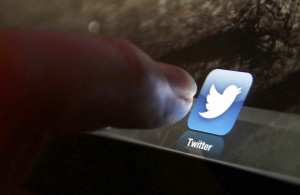 Twitter users complained for a long time about the company’s harassment policies. Or rather their lack of harassment policies. It took the death of the very beloved celebrity, Robin Williams, to finally open Twitter’s eyes and do something. After Zelda Williams announced she was leaving Twitter due to the harassment by some users, Twitter released a statement promising to “improve our policies to better handle tragic situations like this one.”
Twitter users complained for a long time about the company’s harassment policies. Or rather their lack of harassment policies. It took the death of the very beloved celebrity, Robin Williams, to finally open Twitter’s eyes and do something. After Zelda Williams announced she was leaving Twitter due to the harassment by some users, Twitter released a statement promising to “improve our policies to better handle tragic situations like this one.”
Although “improving policies” is a step in the right direction, experts know that by ignoring the problem for so long, Twitter has landed in a PR minefield. Everyday, Twitter has users complain of harassment. Their weak statement about trying to improve policies contains no concrete actions. It only recognizes that there is an issue. That recognition came about due to the high profile nature of Williams’ announcement.
Before Williams decided to leave Twitter, users had begged for the company to do something about abusive posts. While Twitter has installed a “Report Abuse” button, it is often ineffective. Imani Gandy, senior legal analyst at the reproductive health publication RH Reality Check, receives daily threats. Even though she has blocked one of her abusers accounts repeatedly, he creates new ones and continues to harass her. Twitter has done little to help.
Gandy researched other instances of Twitter allowing harassment to continue. She found one example where Twitter reviewed a tweet of one user threatening to rape another user, but said the threat did not violate its community rules against “abusive behavior.” Unfortunately, for Twitter, this lack of action is not an isolated case.
Twitter has a strong commitment to freedom of expression. That commitment comes at a cost to users who are continually harassed. Soraya Chemaly, a media critic and feminist activist, points out that Twitter does not “fundamentally care about the effects of harassment on certain members of their customer base – namely, the ones most likely to need additional protections built into the system.” Chemaly also adds that in cases such as Zelda Williams’, it is often the victim that leaves Twitter and not the abuser.
Occurrences like Gandy’s, and others who have received threatening tweets ignored by Twitter, are unacceptable. Expert’s know that Twitter needs an effective crisis management PR campaign. The court of public opinion has already passed judgment on Twitter and found it guilty. Now is the time for Twitter to strategically manage the message, and take a rapid-fire approach to contain the damage. The weak statements they issued will only lead them further into the PR minefield.